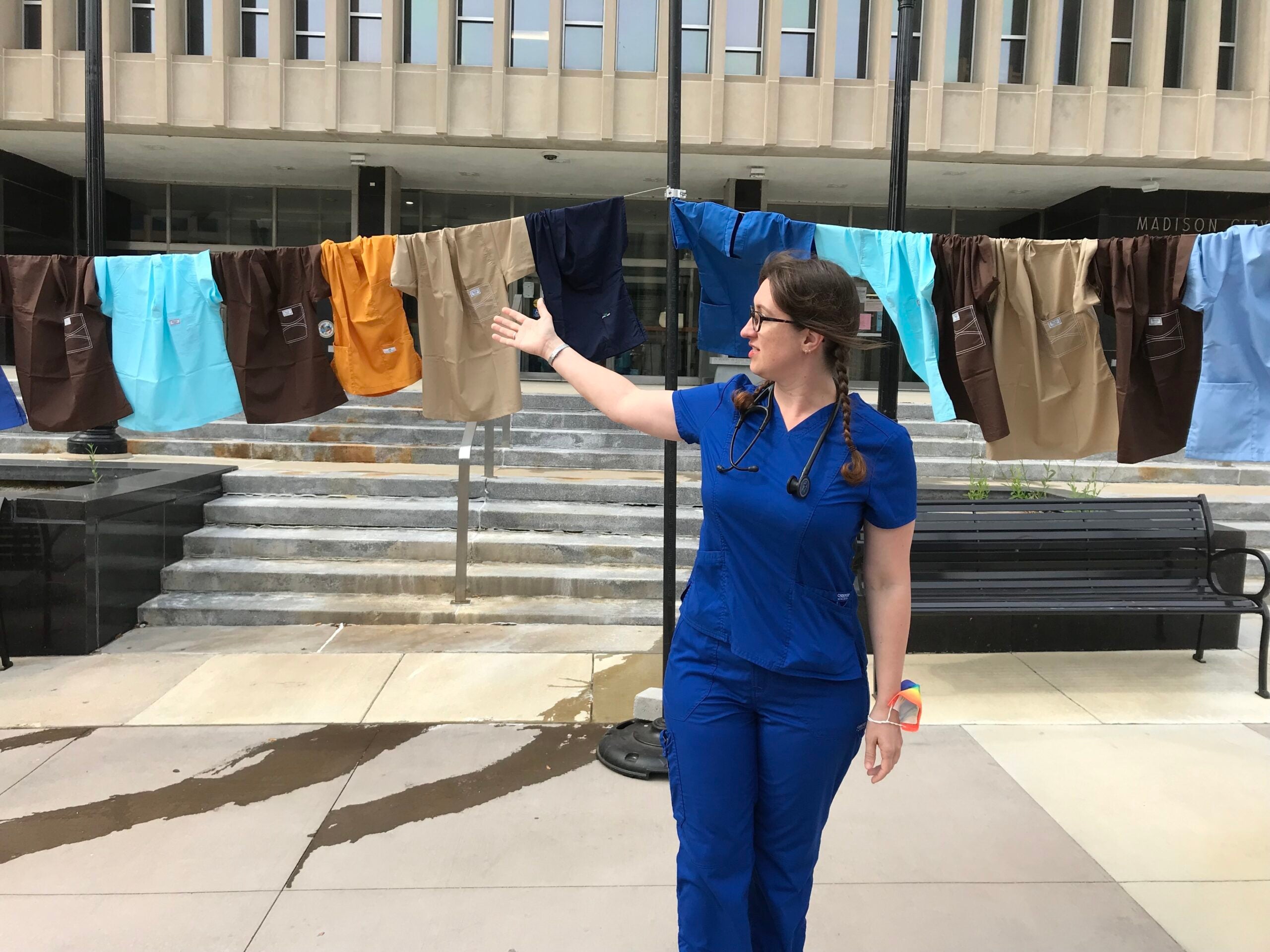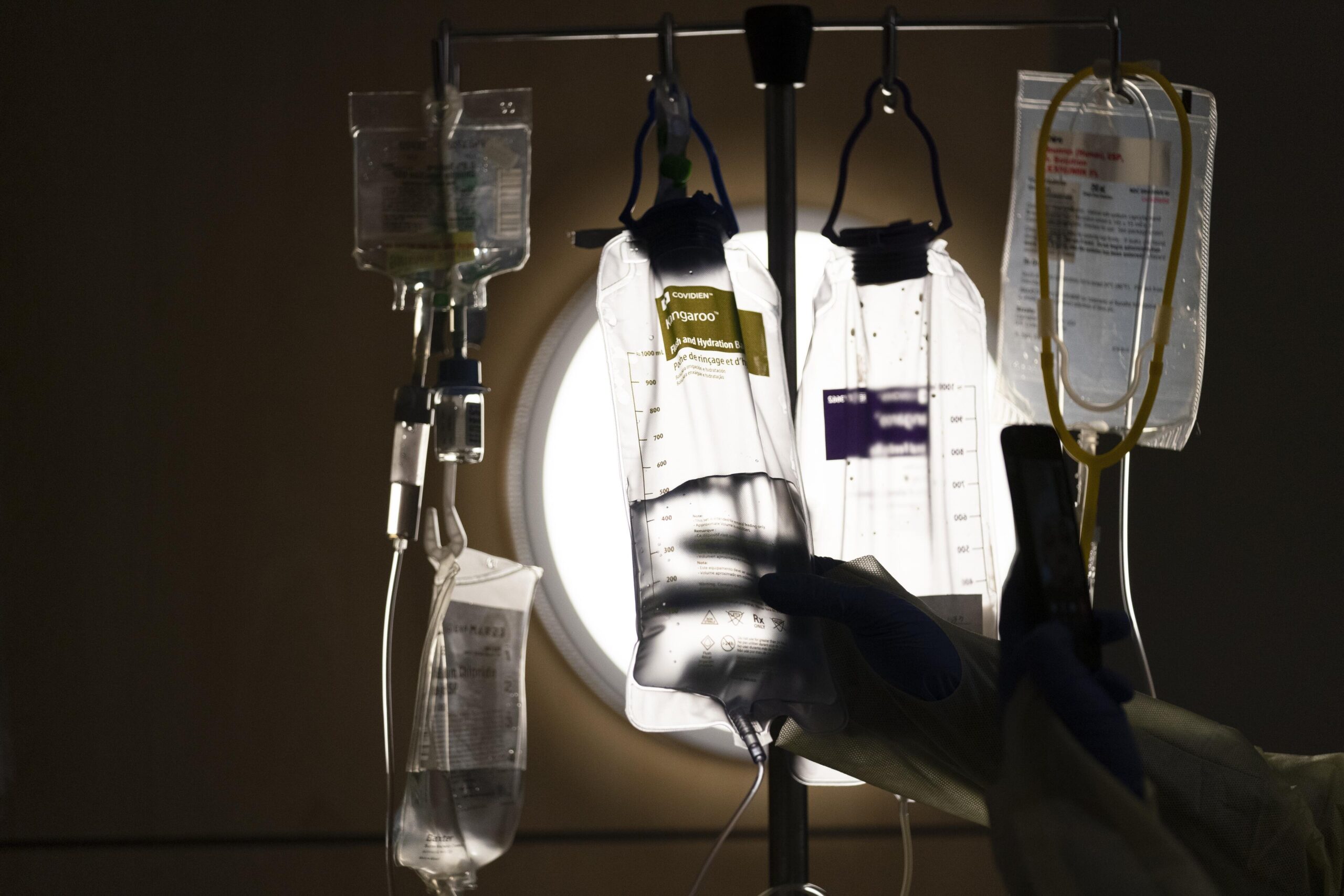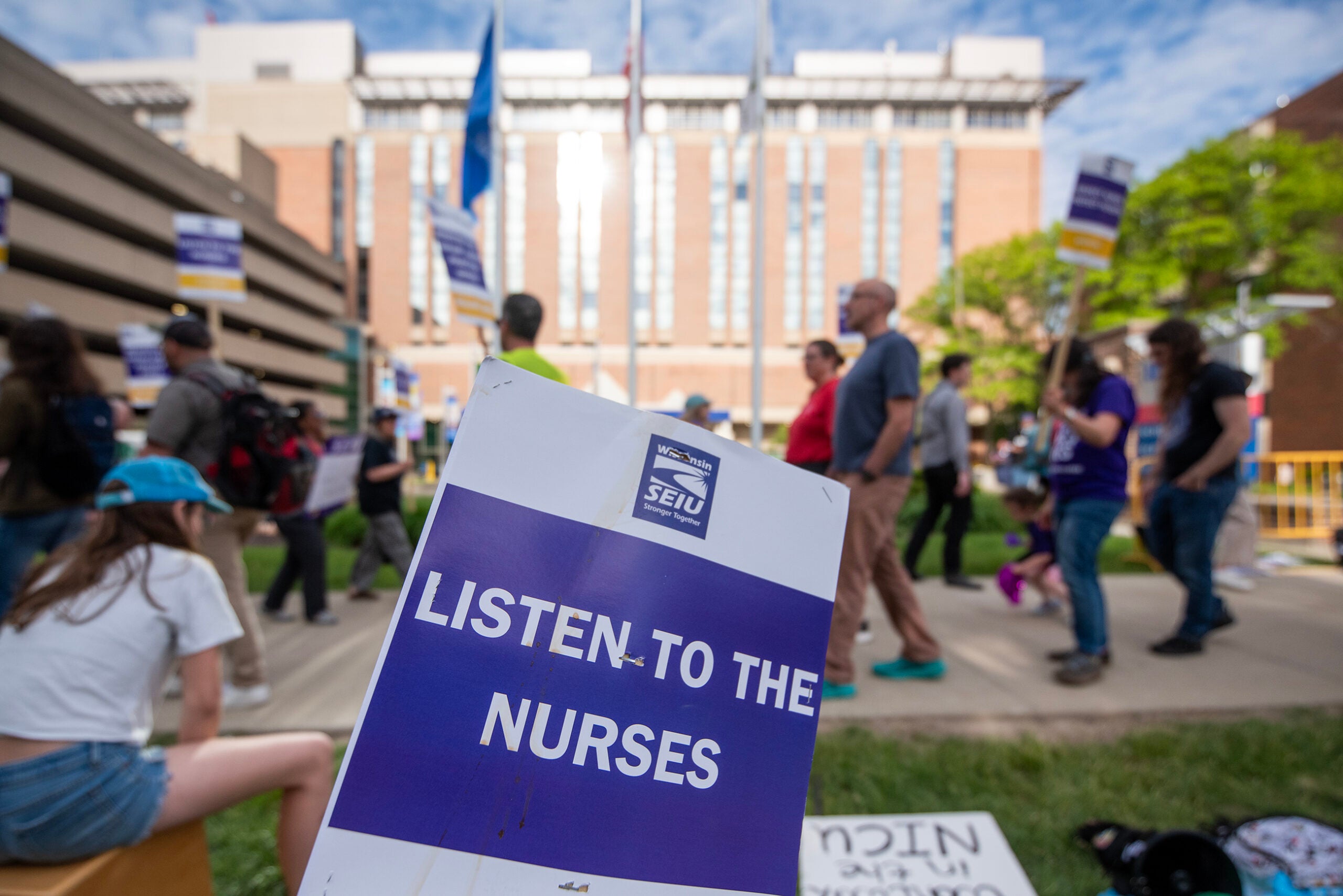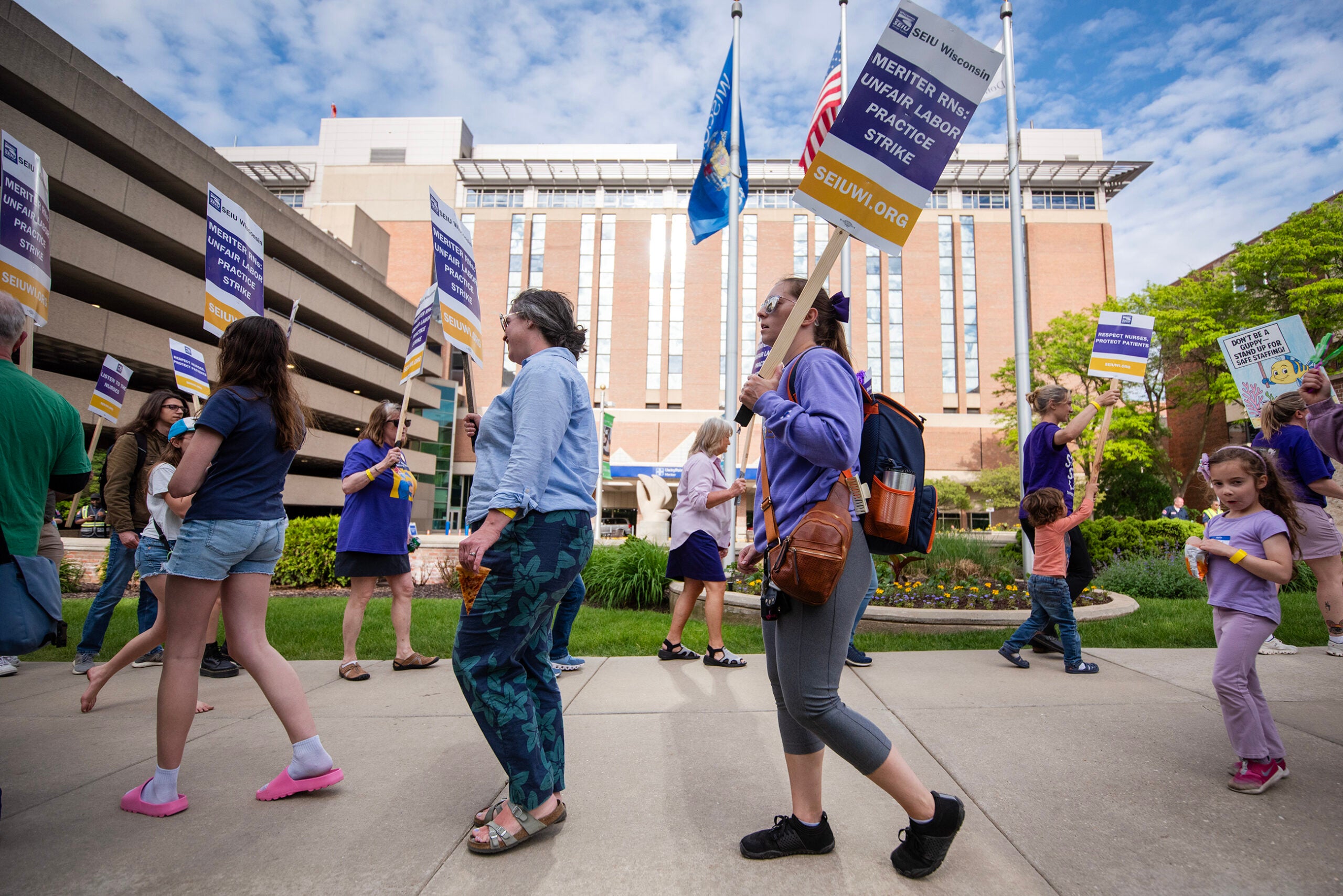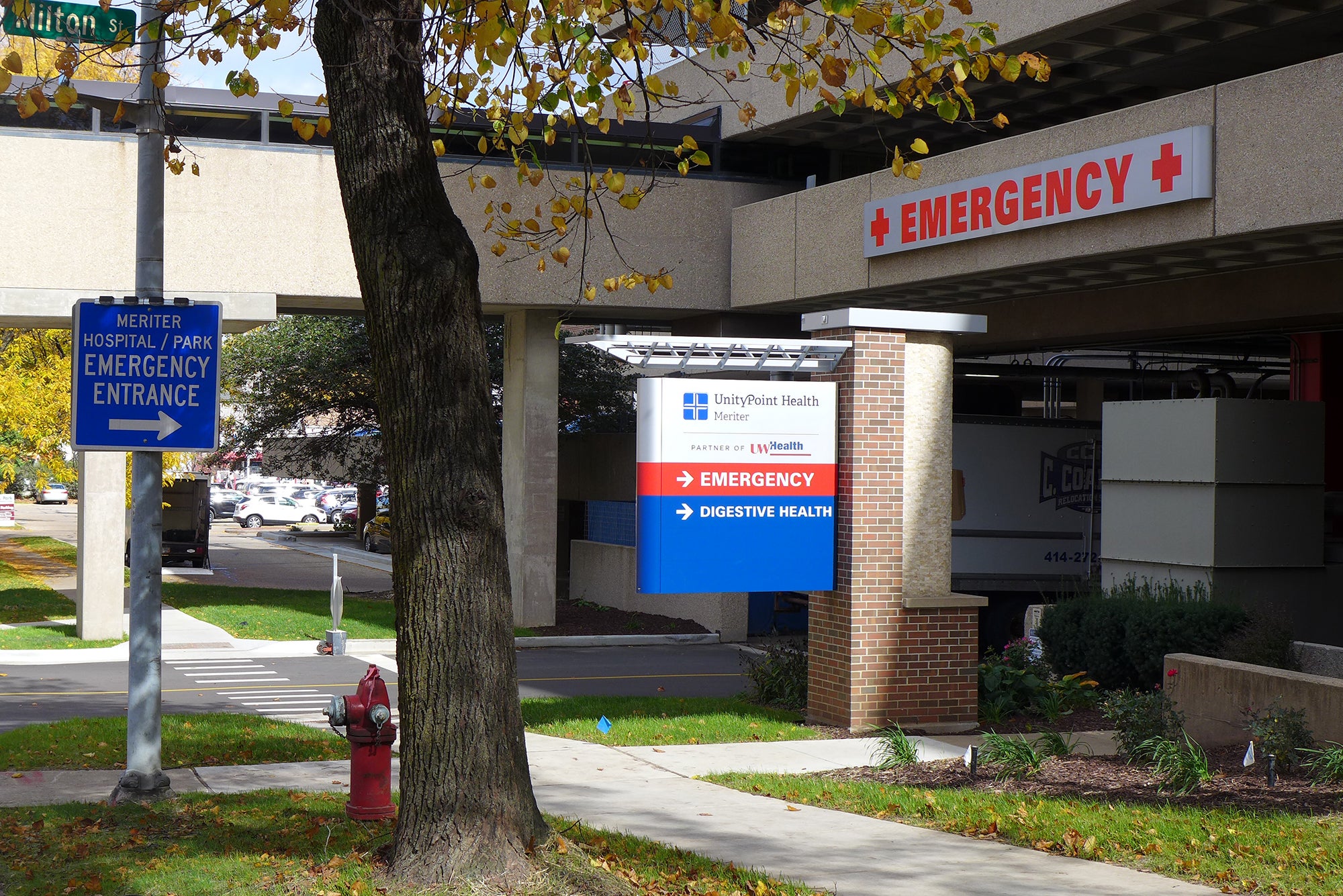The demand for nurses is spiking as cases of COVID-19 climb in Wisconsin, and hospitals are using temporary employees and offering big bonuses to lure new permanent workers.
Meanwhile, current nurses are demanding a say in working conditions.
Nurses at UW Health say they’re understaffed and that the pandemic has “laid bare” systemic issues regarding working conditions.
News with a little more humanity
WPR’s “Wisconsin Today” newsletter keeps you connected to the state you love without feeling overwhelmed. No paywall. No agenda. No corporate filter.
“We’ve only just now, in the spring, begun to be able to change our N95 masks once daily instead of using them for days or weeks,” said UW Health emergency room nurse Mariah Clark, who noted that ideally, nurses and doctors would put on a new mask for each patient encounter.
Clark joined other UW Health employees and elected Madison officials who support a union that a majority of nurses voted for in 2019 but which the board overseeing the Madison hospital rejected.
“Nurses are really being run ragged dealing with more patients, excessive hours and scheduling challenges impacting their health,” said Madison Alder Lindsay Lemmers.
“They’re getting burned out, and we need to be there for them,” she said while announcing a Common Council resolution Thursday outside the City-County Building, where she also called for a “fair union election to ensure quality patient care.”
Demand for nurses has spiked during the pandemic, and a more contagious strain of the COVID-19 virus — the delta variant — has only increased that demand. But some of those nurses have quit, while others are trying to hang on for financial reasons, despite concerns they could become infected even if they’re vaccinated and take other precautions.
“I have friends who are nurses, and they’re worried about themselves and their families,” said Lemmers.
A May 2020 report from the Wisconsin Department of Workforce Development projected more than 10,000 vacant nursing positions by 2030. The information for the staffing estimates were obtained before the pandemic, but the authors of the report say the projections still stand.
That’s because of an aging workforce that is retiring and a shortage of new nurses to replace them, in part because there aren’t enough nursing faculty to teach them.
In its own report on the pandemic and staffing, the Wisconsin Hospital Association said the workforce was depleted following an “all-hands-on-deck” approach that required “relentless overtime” in the last quarter of 2020.
In seeking temporary workers, Wisconsin has to compete with other states that need nurses just as much or more. Natural disasters in other parts of the country, like Hurricane Ida, are driving up demand for travel nurses.
Some hospitals are paying as much as $8,000 a week to travel nurses depending on where they work in the U.S., according to Bloomberg. In Wisconsin, hospitals are offering signing bonuses as high as $15,000, reports the Post Crescent.
Other health systems currently have enough staff and haven’t had to call in temporary travel nurses or offer extra money to new hires. In rural northwestern Wisconsin, Hayward Area Memorial Hospital has had a stable workforce through most of the pandemic, according to Chief Clinical Officer Aindrea Lindsay.
“We’re in a great spot,” she said about staffing, although nearby hospitals which can provide a higher level of care do not always have room to take additional patients in the ICU.
Wisconsin Public Radio, © Copyright 2025, Board of Regents of the University of Wisconsin System and Wisconsin Educational Communications Board.

